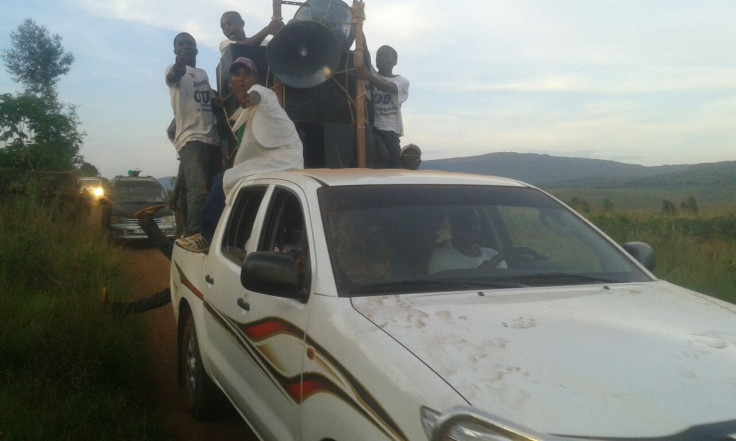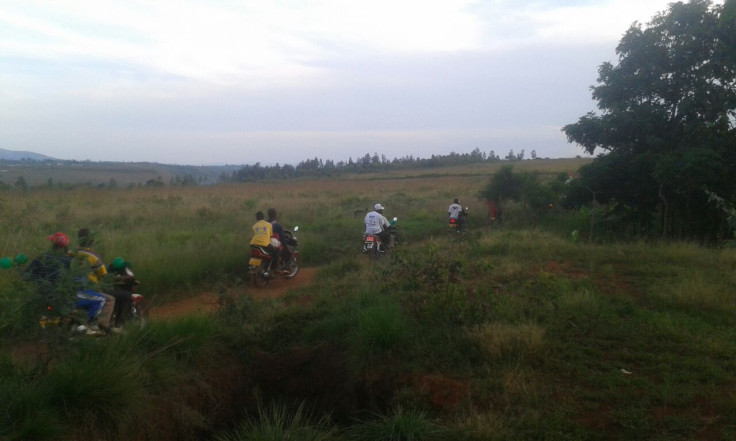Burundi ruling party youth wing Imbonerakure gang-raped hundreds of women and girls says HRW
Imbonerakure allegedly beat and gang-raped female family members of perceived opposition.

Burundian women have been repeatedly gang-raped by members of the ruling party's youth league, the Imbonerakure, since a wave of political protests began in 2015, a human rights organisation has claimed.
Burundi has a long history of rape, including during periods of armed conflict or political crisis. Earlier this year, IBTimes UK reported that armed men, including the Burundian National Police, the Imbonerakure and lawbreakers had raped or sexually assaulted women and girls in so-called "dissenting" neighbourhoods, where protests against President Pierre Nkurunziza's third term sprang in April of last year.
Who are the Imbonerakure?
The Imbonerakure are the members of the youth league of the ruling party, the Council for the Defence of Democracy – Forces for the Defence of Democracy (CNDD-FDD).
They are organised across Burundi, down to the local level, and have long been used to target government opponents.
According to a large number of people interviewed by IBTimes UK, their role in the repression has increased since the beginning of the political crisis in April last year.
Read more: Who are the feared Imbonerakure youth?
At the time, activists had launched the #BurundiStopRape campaign as women were finding themselves increasingly vulnerable to sexual violence.
A new report by Human Rights Watch (HRW), however, has confirmed a pattern of abuse in many locations and in several provinces, where men armed with guns, sticks, or knives raped women during attacks on their homes, most often at night.
"Attackers from Burundi's ruling party youth league tied up, brutally beat, and gang-raped women, often with their children nearby," Skye Wheeler, women's rights emergencies researcher at HRW, said. "Many of the women have suffered long-term physical and psychological consequences."
Hundreds of women and girls victims
According to humanitarians working in the Nyaragusu refugee camp in Tanzania, 323 women and girls reported cases of rape or sexual assault that occurred in Burundi between May and September 2015. This included 264 women and 59 girls, the United Nations refugee agency (UNHCR) confirmed.
Of all incidents reported from June to October 2015, 16 were allegedly perpetrated by the police and 177 were allegedly perpetrated by other members of the security forces or Imbonerakure, the women told the humanitarians in Nyaragusu.
Humanitarian workers in the two newest Tanzanian camps, Nduta and Mtendeli which opened late last year confirmed over 170 people reported rapes in Burundi or after their escape from Burundi.
A man, in his mid-thirties, told IBTimes UK how his mother had been assaulted in one of the districts known as Cibitoke - considered a stronghold of the opposition - in Burundi's capital Bujumbura in 2015. Still living in the capital, his mother refused to speak about her assault for fear of her safety, but her son agreed to describe the attack – under condition of anonymity.
"It was next to our home in Cibitoke. She was nearly raped by policemen of Nkurunziza's guard," recalled the man N., who is in exile in neighbouring Rwanda.
It was early morning, a group of people composed by policemen and Imbonerakure are scattered in the plots of the Cibitoke neighbourhood where there mostly women and girls left. After police asked them if and where they could find young people with (hidden) arms in the area, the women and girls were beaten. Those who had money on the spot gave it to these people to save their lives. Those who did not have it, were asked to take off their clothes and sleep with these people in turns without getting any help. Maman (Mother) was able to escape this evil because she gave them money there and then.
However, the number of rape cases may be highly under-reported, HRW warned, as medical staff of aid organisations believe many women do not report rape unless they are seeking treatment for continuing medical problems.
A pattern of rape attacks and sexual assault
As reported earlier this year, many of the rapes appear to have been aimed at female family members of perceived government opponents or members of opposition parties.
In one case, a woman, 36, claimed she was raped by three Imbonerakure who held her by the arms and legs, in the Mutakura neighbourhood, another perceived opposition stronghold of Bujumbura, in October 2015.
She said she recognised one of the men who patrolled her neighbourhood because he also verbally harassed her husband, an opposition National Liberation Forces (FNL) member, during visits to their home on several occasions before the attack.
"[An attacker] said: 'Let's kill her, she is an FNL wife' as they raped me," the victim explained.

Some of the male family members were also allegedly targeted. During the attack, the Imbonerakure allegedly took the victim's husband away. His body was later found in a nearby ditch the following day.
While women said they were raped in or close to their homes, HRW found that rape "appeared to be used to try to deter people from fleeing Burundi".
Between mid-2015 and early 2016, six women claimed to have been raped on the Burundian side of the Tanzanian border by people they said were Imbonerakure or Burundian police,
"The attackers ordered the victims to return home, or verbally harassed them for attempting to leave. Sixteen others who tried to leave reported extortion, beatings, verbal harassment, or detention by Imbonerakure or police," HRW said in its report.
Other rapes may have been opportunistic, HRW added.
No emergency medical services for rape victims
Survivors have been suffering from fresh injuries and longer-term consequences, and many fled the country without being able to get emergency post-rape care such as urgent care for HIV exposure or emergency contraception.
Longer-term consequences include sexually transmitted infections, unwanted pregnancies, anxiety, and depression.
Humanitarians said they were continuing to train staff at the border posts, stockpiled drugs at the border, and were trying to increase the number of female staff there, to encourage women to report sexual violence, according to HRW.
HRW wrote to the president of the CNDD-FDD, Pascal Nyabenda, on 12 July seeking his response to allegations of rape by Imbonerakure, but did not receive any reply.
Human Rights Watch recommendations
- President Nkurunziza should publicly denounce security force and Imbonerakure abuses and ensure that rapists and other abusers are held to account.
- The UN Security Council should authorise a strong international police force for Burundi, including women officers, to deter abuses, including rape.
- The UN Security Council should urgently set up an independent, international commission of inquiry with judicial, forensic, and medical expertise, as well as expertise in investigating torture and sexual violence.
- Rape victims should have access to post-rape care that meets World Health Organisation standards, including, if needed, emergency HIV prophylaxis and contraception.
© Copyright IBTimes 2025. All rights reserved.






















